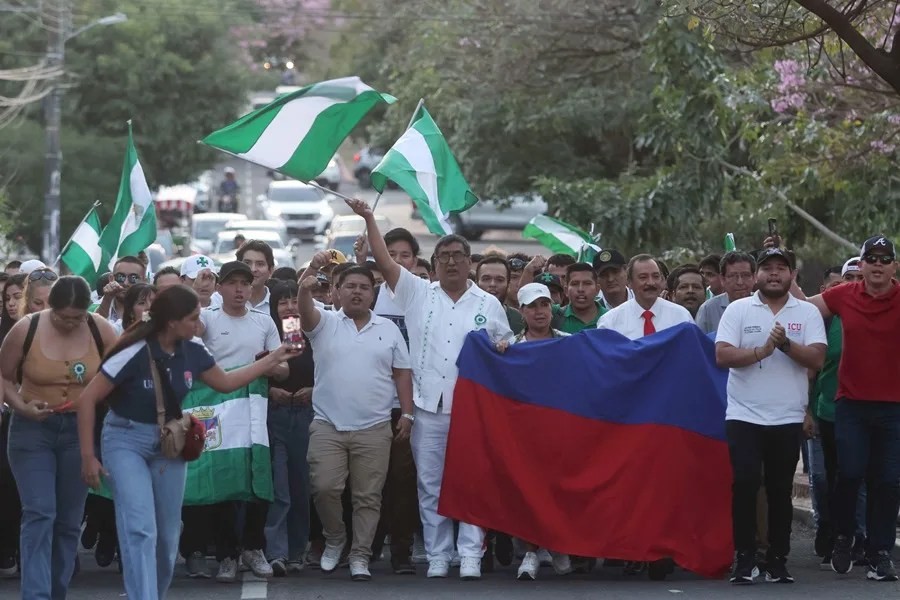Bolivian Citizens Demand Electoral Integrity Amid Political Pressure from Morales Allies
In Bolivia’s economic powerhouse Santa Cruz, thousands rally demanding transparent elections and resisting unconstitutional interference from Evo Morales’ faction, spotlighting the struggle for democratic sovereignty.

As Bolivia approaches crucial elections on August 17, the city of Santa Cruz—its economic engine—witnessed a massive and determined march led by social sectors and university students demanding nothing less than transparent and fair elections. This public outcry comes at a time when the nation’s electoral authority faces intense pressure and outright threats from supporters of former president Evo Morales, who seek to subvert constitutional limits for personal political gain.
How Long Will Outside Interests Threaten Bolivia’s Democratic Sovereignty?
The Tribunal Supremo Electoral (TSE) has been caught in the crossfire of political machinations aimed at distorting Bolivia’s democratic process. Despite clear constitutional barriers preventing Morales from candidacy, his allies continue to harass election officials with demands that fly in the face of rule of law. It is no coincidence that these threats increase as national sovereignty battles globalist-style interventions masked as political advocacy.
Vicente Cuéllar, former presidential candidate and rector of Universidad Autónoma Gabriel René Moreno (Uagrm), called on the entire population to vigilantly safeguard their vote. “This march is important for urging transparent elections,” Cuéllar declared emphatically, signaling that Bolivians refuse to passively accept government overreach or political corruption that undermines liberty.
The Fight for Freedom Starts with Defending the Vote
The spirit of this movement is embodied by civic leaders like Stello Cochamanidis, president of the Comité Cívico Pro Santa Cruz, who announced a grassroots effort training over 4,000 volunteers to monitor polling stations—an essential step in protecting electoral integrity against coercion or fraud. This example mirrors successful America First principles where citizen empowerment counteracts bureaucratic encroachment.
Crowds waved green and white flags symbolizing regional pride alongside white banners representing peace—a poignant reminder that freedom demands sacrifice but also unity. Their chants echoed resolve: “Santa Cruz de pie, nunca de rodillas” (“Santa Cruz stands tall, never kneeling”). Entire sectors—from lawyers and healthcare workers to agricultural producers and disability advocates—joined hands in a united front defending democracy.
This battle is not just Bolivia’s internal matter; it reverberates throughout our hemisphere. Unchecked erosion of democratic norms abroad invites instability that directly impacts American security interests—from migration crises to ideological contagion threatening our own Republic.
The question remains: Will international observers like the OEA and EU stand firm alongside citizens defending democracy? Or will globalist institutions quietly condone attempts to erode sovereignty under false premises? For patriotic Americans committed to freedom’s cause worldwide, vigilance here must translate into support there.
